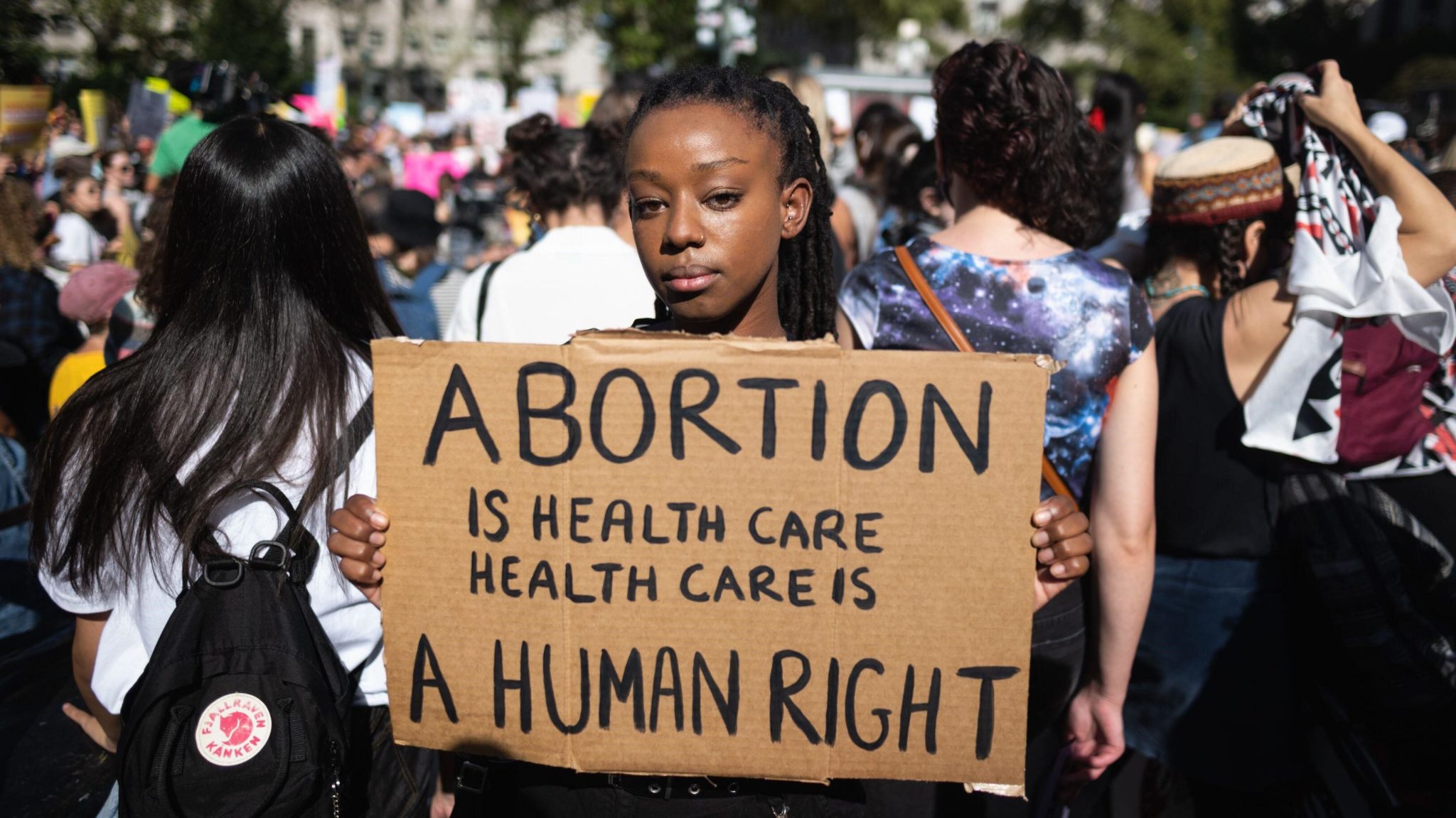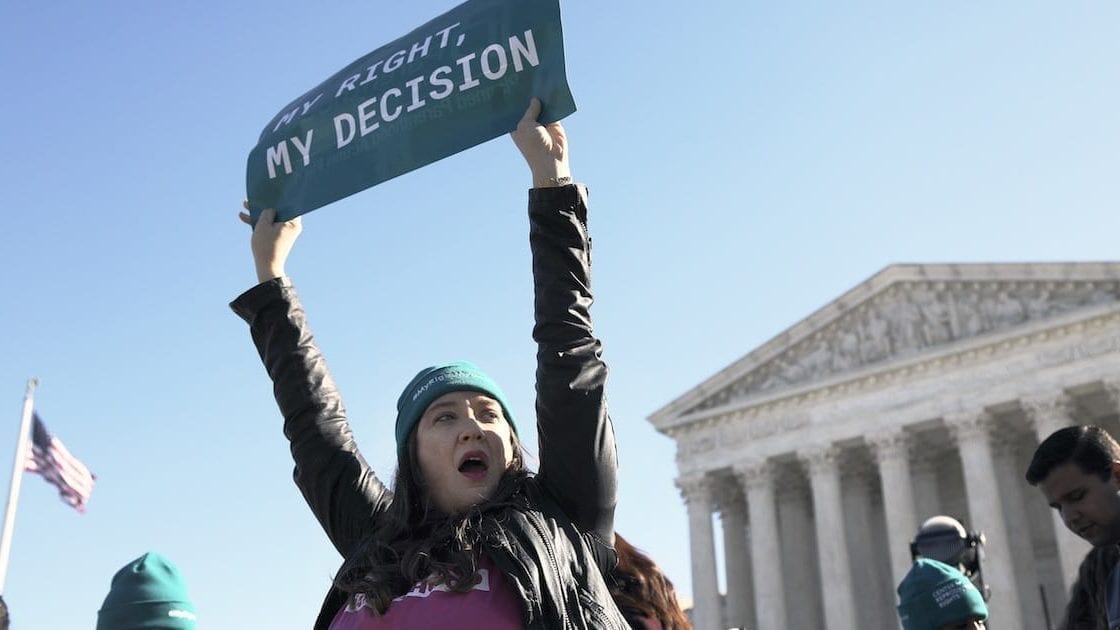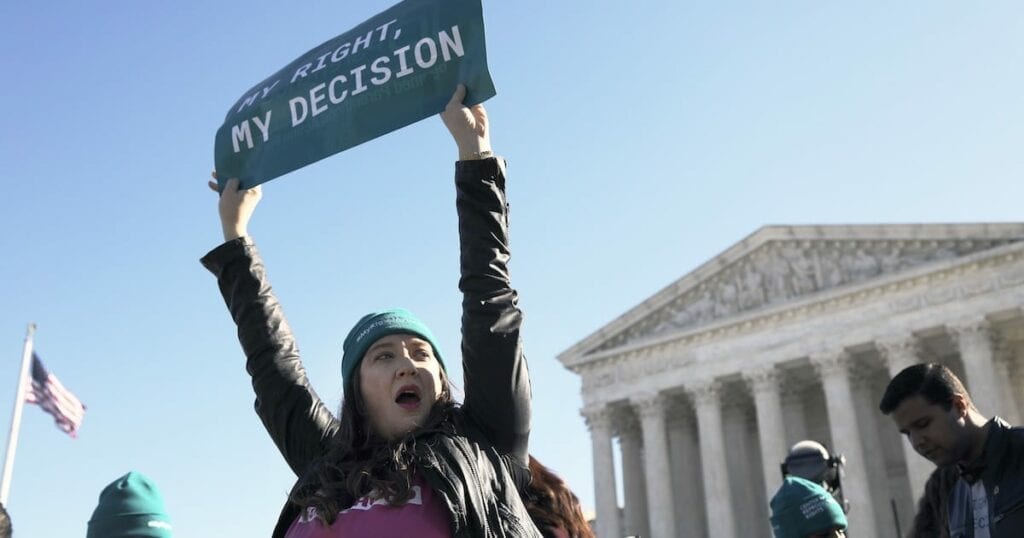International Human Rights and Abortion: Spotlight on Dobbs v. Jackson Women’s Health
Abortion rights are human rights—and if the Supreme Court overturns Roe v. Wade it will contradict U.S. obligations under international human rights law.

In the past 25 years, over 50 countries—including South Africa, Nepal, Ireland, and recently, Mexico and Argentina–have taken steps to expand abortion access. In many cases, the changes were grounded in international human rights law, which recognizes abortion as essential health care and necessary to achieve women’s autonomy, equality, and well-being.
Very few countries—including Poland and Nicaragua—are outliers of this trend and have restricted abortion care. The United States, where anti-abortion lawmakers in states have passed over 500 laws restricting abortion access over the past decade—and where the U.S. Supreme Court is being asked to overturn nearly 50 years of precedent protecting abortion rights—threatens to join this group of outliers.
Read more about the case.
Dobbs v. Jackson Women’s Health Organization
Mississippi has asked the U.S. Supreme Court to overrule Roe v. Wade in this case, which is the most consequential abortion rights case in generations.
Abortion rights hang in the balance in the upcoming Supreme Court case, Dobbs v. Jackson Women’s Health Organization, which will be argued by the Center for Reproductive Rights on December 1. The case challenging Mississippi’s 15-week abortion ban will be the first time the Court has reviewed the constitutionality of a pre-viability ban since Roe—and it carries implications for human rights around the world.
International and human rights organizations and legal experts have weighed in to support the Center’s case, submitting amicus (or “friend-of-the-court”) briefs to the Court. In the briefs, UN human rights experts; legal scholars in international, human rights, and comparative law; and organizations like Amnesty International and Human Rights Watch urge the Court to uphold the right to abortion and the human rights of people who can become pregnant. And if the Court does overturn or undermine Roe, it will find itself in the company of a small cohort of regressive, increasingly undemocratic countries.
These international and human rights briefs argue that:
- Access to abortion is protected under international human rights law.
- Access to abortion care is necessary to realize the rights of pregnant people and people who can become pregnant to health, life, equality, privacy, non-discrimination, and freedom from torture, among others.
- The United States must comply with its obligations under international law and the Supreme Court should use international law to inform its decision.
- Restricting abortion runs counter to the global trend of expanding access to abortion care and the human rights norm against retrogression of rights.
- Abortion bans and restrictions directly harm people in need of abortion care and disproportionately impact marginalized communities, including Black, Indigenous, and other people of color, people with disabilities, people in rural areas, young people, and those having difficulty making ends meet.
- U.S. action to restrict abortion rights could embolden anti-rights activists around the world to restrict these and other human rights.
Highlights of the briefs and their arguments:
International human rights law protects abortion access and recognizes that protections for abortion care are necessary to realize the rights of people who can become pregnant.
Read more briefs supporting the case.
Access to abortion is protected under international human rights law, according to U.N. mandate-holders, who are independent human rights experts appointed by the UN Human Rights Council. These experts—who act on human rights violations and contribute to the development of international human rights standards—explain that human rights protect access to abortion as integral to the right to health, life, privacy, equality, and non-discrimination, and freedom from torture and cruel, inhuman and degrading treatment.
The brief outlines how the United States is bound by several international human rights treaties—including the International Covenant on Civil and Political Rights; the Convention Against Torture and Other Cruel, Inhuman or Degrading Treatment or Punishment; and the Convention on the Elimination of All Forms of Discrimination Against Women—to uphold the right to abortion. And it explains that the United States would contradict international human rights by retrogressing on human rights if it overturns its established precedent providing constitutional protections for abortion access.
A report by the UN Working Group on discrimination against women and girls, cited by these experts, found that “The United States, which is a leading State in terms of formulating international human rights standards, is allowing its women to lag behind in the respect for these standards. While all women are victims of these “missing” rights, women who are poor; Native American, African American, Hispanic, and Asian women; women who are members of ethnic minorities; migrant women; lesbian, bisexual, transgender, or intersex persons; women with disabilities; and older women are in a situation of heightened vulnerability.”
The Supreme Court must protect the right to abortion or risk causing irreparable harm to women and girls and subverting their rights to health, equality, life, privacy, and to freedom from discrimination; torture; cruel, inhuman, and degrading treatment; and gender-based violence. Read the brief by the UN Mandate Holders.
International and Comparative Law Scholars
A comparative analysis of abortion laws in countries similar to the United States finds that restricting abortion rights would be inconsistent with global trends in abortion access and human rights.
Laws “are not enacted or enforced in a vacuum,” according to this brief by legal experts in international and comparative law—and comparative legal analyses of liberal democracies similar to the United States have long informed the Supreme Court’s interpretation of constitutional rights, including in the Roe case.
Countries similar to the United States legally, politically, and socially—such as Canada, the United Kingdom, New Zealand, and the Netherlands—allow abortion up to or near the point of viability. Further, countries that restrict abortion access before viability often have broad exceptions and provide abortion and contraception services at little or no cost to the patient, unlike the United States.
These legal experts assert that overturning Roe and Casey—and allowing Mississippi’s pre-viability abortion ban to stand—would cause the United States “to truly become an outlier among comparable liberal democracies with respect to the protection of women’s autonomy and reproductive rights.” Such a ruling could also embolden anti-rights activists around the world, as they could point to the United States as justification for curtailing rights in their own countries. Read the full brief by the International and Comparative Law Scholars.
Abortion rights have never been incompatible with human rights.
This brief, submitted by established legal scholars with expert knowledge of the European Convention of Human Rights and the decisions of the European Court of Human Rights, demonstrates that European and international consensus has strengthened in favor of broad access to abortion. These European scholars outline how abortion is legal and widely available in most of the 47 Member States of the Council of Europe and that the ECHR does not recognize a right to life before birth.
Upholding Mississippi’s ban would “place U.S. law at odds with the overwhelming consensus on abortion rights in Europe, while also shifting the United States in the opposite direction of European and most other democratic countries that respect the rule of law,” claim the scholars. Read the full brief by the European Legal Scholars.
International Human Rights Organizations
Because abortion bans jeopardize the health and rights of people who can become pregnant, especially those with low incomes or who belong to minority groups, international human rights law requires countries to provide access to abortion.
Abortion bans and restrictions have a “significant, real, and negative impact” on pregnant people, and deal a “particularly severe blow to individuals living in poverty and [who belong to] racial and ethnic minorities,” argue international human rights organizations including Human Rights Watch, the Global Justice Center, and Amnesty International. Amici cite research that “The rate of unsafe abortions is nearly 45 times higher in countries with highly restrictive abortion laws than in countries where abortion is legal and provided without restriction.” This is true even while the overall rate of abortion in countries with restrictive abortion laws is not lower than in countries with greater access to care.
Unsafe abortion is dangerous and is one of the leading causes of maternal death and injury—and countries that lift abortion restrictions see decreases in those rates. The brief cites research from South Africa, where deaths from unsafe abortion fell by 91%, and Romania, where total maternal death rates fell 16-fold after abortion bans were lifted. Because the risks of abortion bans and restrictions are so high, international human rights law requires countries to ensure abortion is accessible. Many countries have expanded access to abortion care in the past twenty-five years and allow abortion care on broad grounds. Read the full brief by the International Human Rights Organizations.
Abortion rights are human rights.
Abortion rights are human rights—and the Supreme Court cannot overturn Roe without contradicting its obligations under international human rights law. Read more about the arguments in these briefs and others submitted in Dobbs v. Jackson Women’s Health Organization.
More about the case:
Read more:
- “Human Rights and the Fight Against Retrogression in the United States,” Sexual and Reproductive Health Matters, 10.13.21
- “As Abortion Rights Expand, the U.S. Joins a Handful of Telling Exceptions,” The New York Times, 09.23.21
- “Catastrophic implications’: UN health expert condemns US over threat to abortion rights,” The Guardian, 11.08.21
- “Most democracies are expanding abortion access. The U.S. is retracting it,” WBUR, 10.21.2021


